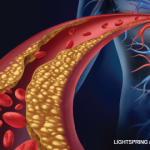(Reuters)—The U.S. Food and Drug Administration is strengthening an existing warning label that non-aspirin, non-steroidal antiinflammatory drugs (NSAIDs) increase the risk of heart attack or stroke.
NSAIDs include ibuprofen, naproxen, diclofenac and celecoxib, all of which carry FDA warning labels.
The agency said it would require updates to the labels of prescription and over-the-counter (OTC) non-aspirin NSAIDs, both of which already carry information on heart attack and stroke risk.
The revised labels will reflect that the risk of heart complications can occur as early as the first weeks of using an NSAID and increases at higher doses and depending on duration of use, the FDA said.
The new labels will also reflect that the drugs increase the risk of heart failure, irrespective of whether patients have a history of, or risk factors for, heart disease.
The agency said it would also require labels to reflect that patients who take NSAIDs after a first heart attack are more likely to die in the first year after the attack than those who do not.



